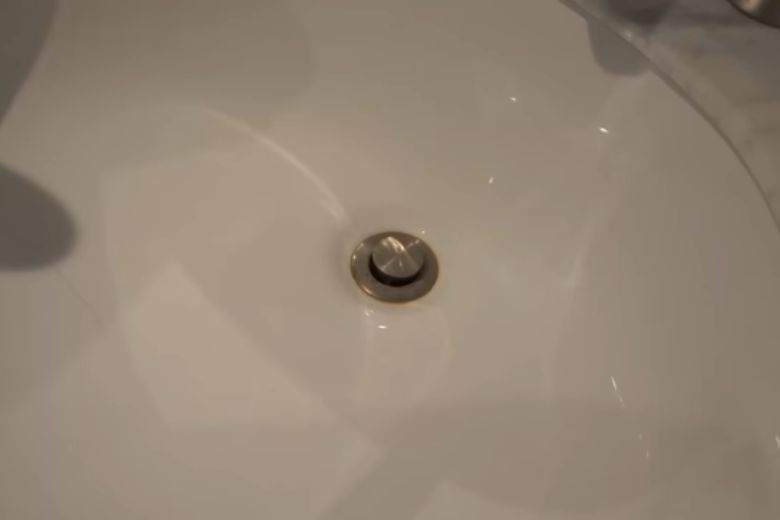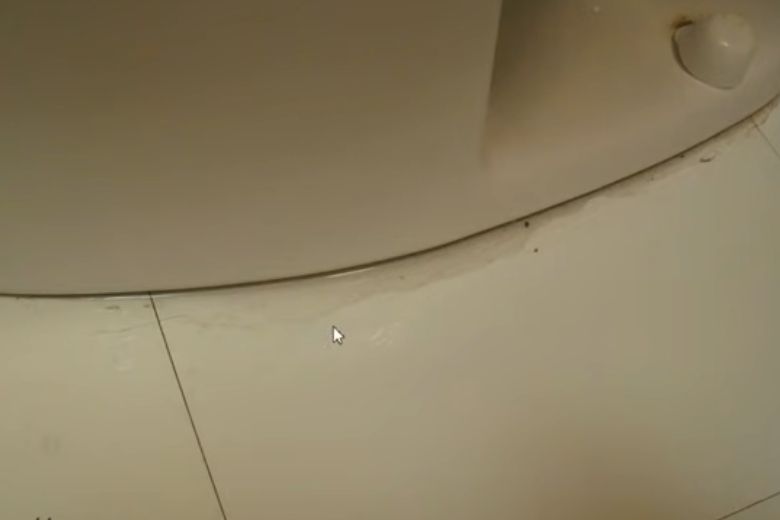We often encounter a musty smell in the bathroom for several reasons and it is somewhat bearable for a few days. But when you begin to smell something more horrible, as rotten eggs smell, it becomes unbreathable and requires immediate action.
In that case, you might wonder why does my bathroom sink smell like rotten eggs?
Feel relaxed; you are not alone.
The intense smell from the bathroom sink happened for many reasons. Firstly, it could be due to a clogged drain or p-trap. Secondly, the bacteria in the drain release a gas called hydrogen sulfide with a distinctive rotten egg odor. On the other hand, damaged vent pipes, sewer gas backup, and long-time unused drains also can create an unpleasant odor from the bathroom sink.
Regardless of the cause, it would help if you took action to remove this immediately. Until then, it becomes impossible to use the bathroom again.
So, we are here with full details of the reason and solution why bathroom sink produces this rotten egg smell.
Let’s get into the topic.
Possible Causes of Rotten Egg Smell in Your Bathroom Sink
We have already mentioned the most common reason your bathroom sinks smell like rotten eggs. Although there are more reasons that can also be responsible for the incident, let’s have a look.
Reason 1: Sulfur Bacteria
The presence of sulfur bacteria is one of the most common causes of a rotten egg smell in the bathroom sink. These bacteria feed on organic matter and produce hydrogen sulfide gas, creating an unpleasant odor, especially a rotten egg-like smell. Generally, it happens when the ventilation system of your bathroom does not work correctly.
Reason 2: Blocked Drain
The second common cause is when your bathroom sink is not draining correctly; it can buildup up bacteria that produce a rotten egg smell or musty smell under the bathroom sink. It is usually caused by a clogged drain or a partially blocked p- trap.
Reason 3: Chemical Reactions
On the other hand, chemical reactions can also cause a rotten egg smell in the bathroom sink. For example, a mixture of bleach or other cleaning products can create a reaction that produces hydrogen sulfide gas and raise a lousy odor of rotten eggs.
Reason 4: Water Heater Issues
Another possible cause of a rotten egg smell in the bathroom sink is a problem with your water heater. If the anode rod in the water heater is worn out, it can produce sulfur gas and cause an odor.
Reason 5: Sewer Gas
Likewise, sewer gas can also cause a rotten egg smell in the bathroom sink. It occurs when there is a leak or blockage in the sewer line. Sewer gas can enter your home through a damaged vent pipe, a dry P-trap, or a damaged sewer line, seeping into the bathroom sink and creating such a nasty smell.
Reason 6: Buildup of Biofilm
Biofilm is a thin layer of bacteria that can form inside your sink’s drain. As the bacteria in the biofilm multiply, they produce hydrogen sulfide gas, which gives off the characteristic rotten egg smell. Regular cleaning of your sink’s drain can help prevent biofilm buildup and eliminate the odor.
Reason 7: Old Plumbing
Finally, if your plumbing is old or deteriorating, it can produce a rotten egg smell. The pipes can corrode over time, creating a buildup of organic matter and bacteria that make the odor.
How to Remove Rotten Eggs Smell from Bathroom Sink Drain
Like multiple reasons, there is numerous solutions for bathroom sink drain rotten eggs smell. We have pointed out each in detail, so let’s find out which one you need.
Solution 1: Primary Method
Initially, you should try some simple methods to minimize this smell. In that case, you can use hot water. Yes, running hot water down the sink for a few minutes will help flush out any remaining bacteria or debris.
The hot water method will diminish the odor if it is not stubborn and happen for mild clogged, debris, soap scum, or quick removal bacteria.
After using hot water, wait 30 to 1 hour to see whether the smell is gone. If it is remaining, then move for another solution.
Solution 2: Apply Home Remedies
Vinegar and baking soda are the most effective home remedies to eliminate a rotten egg smell in your sink. This method will work even for an even more persistent odor. However, to use this method, pour a cup of baking soda down the drain, followed by a cup of vinegar. Let the mixture fizz for a few minutes, then flush the drain with hot water.
Another option is the use of lemon juice and baking soda. Take a small bowl and mix 1/2 cup of baking soda and 1/4 cup of lemon juice to form a paste. Apply the paste to the sides and bottom of the sink, paying attention to the drain area.
Allow the paste to sit for 10-15 minutes. Scrub the sink with a brush or sponge to remove any grime and residue. Finally, rinse the sink thoroughly with hot water.
After applying the paste, you can repeat the process if you feel the smell is significantly reduced. Eventually, you can repeat this process until the odor is gone.
Solution 3: Use Commercial Cleaners
Apart from home remedies, you can also use commercial cleaner as an excellent workable solution. Among multiple commercial cleansers, use a drain cleaner that contains enzymes. Besides you can also try a bacterial cleaner that has live bacteria culture.
Some examples of commercial are Bio-clean drain septic bacteria, drano max gel, liquid-plumr pro-strength full clog destroyer, and zep drain defense enzymatic drain cleaner, etc.
These are the maximum bacterial cleaner combination of natural bacteria and enzymes formula. They can eliminate grease, hair, soap scum, clog, paper, cotton, and most dissolving elements from your drain system. Therefore, efficiently remove the bad smell from the sink drain.
Note: However, before using these commercial cleansers, follow the manufacturer’s instructions carefully and take proper precautions to protect yourself from exposure to harsh chemicals.
Solution 4: Eliminating Unpleasant Odors with Essential Oils
Another exciting solution to remove the rotten eggs smell from your bathroom sink is using essential oil. Do you surprise by hearing this? If yes, please don’t; we will explain how you can use this solution.
Generally, essential oils have natural antibacterial properties that help to eliminate odors. Besides, essential oils are safe, non-toxic, and a great alternative to harsh chemical cleaners.
Pour a cup of hot water into the sink to use essential oils. It will help loosen any buildup or debris. Next, add a few drops of essential oil to the sink, such as lemon, tea tree, or eucalyptus oil, whatever flavor you like. Allow the oil to sit in the sink for several hours or overnight before rinsing with hot water.
However, if you have a pet, note that some essential oils can be harmful to pets, so be sure to keep them out of reach of your furry friends.
Solution 5: Using a Plunger as a Last Resort
A plunger can be a helpful tool to remove smells like rotten eggs from a bathroom sink. Still, it should only be used after attempting other methods, such as using a commercial cleaner or a home remedy. Plungers create a vacuum that dislodges clogs and buildup up the pipes. Suppose a blockage is causing the smell in the drain. Using a plunger may effectively remove the clog and eliminate the odor.
However, plungers should not be used if the sink is completely clogged or if a drain trap is in place, as this can cause damage to the pipes or the trap. To use the plunger correctly, you need to fill the sink with enough water to cover the head of the plunger and then apply firm and consistent pressure up and down to create a suction effect.
After using the plunger, if the smell persists, it will be best to seek the advice of a professional plumber to avoid causing further damage to the plumbing system.
Solution 6: For Venting Issue
One way to solve a venting issue is to check the roof vent to ensure it is not blocked by debris or other obstructions. If the vent is blocked, clear the obstacle and use a hose to flush out any remaining residue.
Another option is to use a plumbing snake to clear any blockages in the vent pipe. If the vent is not blocked, the issue may be due to a clogged or damaged vent pipe, which will require the expertise of a professional plumber to fix it.
You should address venting issues as soon as possible to prevent damage to your plumbing system and avoid health hazards.
Note to Remember:
All these above mention methods are enough for removing odors that are happening for sulfur bacteria, chemical reactions, blocked drains, sewer gas, and biofilm buildup. But if you have old pumping issues, you must replace them with new ones.
Taking a professional plumber’s help will be a wise decision in this situation.
Maintenance Tips for Preventing Rotten Egg Smells in Your Bathroom Sink
- Run hot water down the sink regularly to help flush out any buildup or debris that may be causing the odor.
- Use a commercial cleaner or a natural solution, such as baking soda and vinegar, to clean the drain and pipes on a regular basis.
- Be careful when using oil base facewash, cream, soap, and oil, as they can solidify and cause clogs and odors.
- Install a drain catcher to catch hair and other debris before it goes down the drain and causes clogs and odors.
- Check the drain trap periodically for any buildup or clogs causing the smell, and clean as needed.
- Install a venting system or ensure your existing one works correctly to allow proper airflow in your plumbing system and prevent unpleasant odors.
Frequently Asked Questions
Are the rotten eggs smell harmful to my health?
Answer: The smell can be harmful to your health if it is due to sewer gas or other plumbing issues. So, you must identify the problem quickly to prevent health hazards and property damage.
Can I prevent the smell from coming back?
Answer: Yes, you can prevent the smell from coming back by maintaining your sink and drains regularly, using appropriate cleaning solutions and avoiding harsh chemicals, and addressing plumbing issues promptly. By taking a proactive approach to plumbing maintenance, you can prevent future odors and avoid costly repairs.
Conclusion
In summary, you certainly got the answer to the question, “why does my bathroom sink smell like rotten eggs.” Not only bathroom sinks, but sometimes your kitchen sink also produces some unpleased smell, so don’t panic when it happens. Because By following these tips and taking a proactive approach to plumbing maintenance, you can keep your bathroom sink smelling fresh and avoid costly repairs in the future.
Paul Newman is a blogger who writes about plumbing and home improvement. Over the past 20 years, I have worked as a plumber. My passion is to share my knowledge and experience with others to improve their homes.




